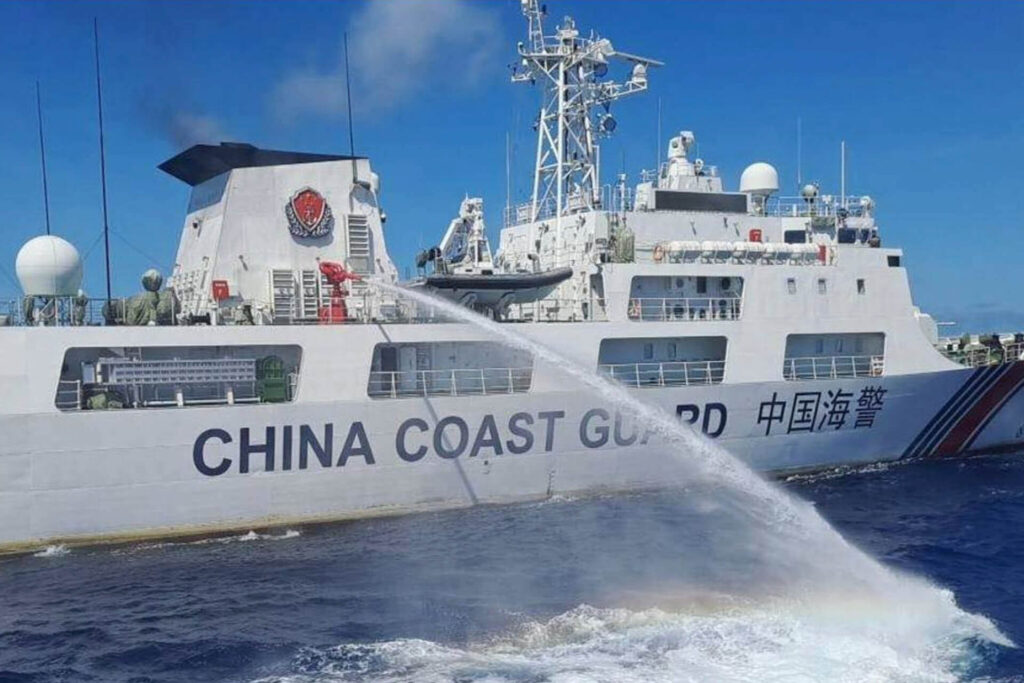The Philippines and China exchanged accusations on Saturday following an aerial encounter over a disputed region in the South China Sea. The Philippine military condemned what it described as “dangerous and provocative actions” by the Chinese air force, while the Chinese People’s Liberation Army (PLA) maintained that its actions were professional and lawful.
This marks the first time the Philippines has publicly criticized the actions of Chinese aircraft, rather than navy or coast guard vessels, since President Ferdinand Marcos Jr. assumed office in 2022. According to a statement from the Philippine military, two Chinese Air Force aircraft executed hazardous maneuvers and released flares in the path of a Philippine air force plane that was conducting a routine patrol over the Scarborough Shoal on Thursday morning.
Philippine armed forces chief Romeo Brawner stated that these actions endangered the lives of personnel involved in maritime security operations within Philippine maritime zones. He added that the Chinese aircraft interfered with legitimate flight operations and violated international aviation safety laws. On the other hand, the Southern Theater Command of the Chinese PLA claimed that the Philippine aircraft, despite multiple warnings from China, continued to illegally intrude into the airspace of Huangyan Island, disrupting training activities.
China’s naval and air forces responded by carrying out identification, tracking, warnings, and expulsion in accordance with the law, the PLA stated. They described their on-site operation as professional, lawful, and in line with established norms, urging the Philippines to cease what they called infringements and provocations.
The Scarborough Shoal, also known as Huangyan Island in China and Bajo de Masinloc in the Philippines, is a frequent destination for Filipino fishermen and remains one of the key flashpoints in the long-standing maritime dispute between the two countries. On Wednesday, Beijing conducted a combat patrol near the shoal, which China seized in 2012.
China claims nearly the entire South China Sea, a vital waterway for more than $3 trillion in annual trade, despite overlapping claims by the Philippines, Vietnam, Indonesia, Malaysia, and Brunei. Beijing continues to reject a 2016 ruling by the Permanent Court of Arbitration in The Hague, which found that China’s expansive claims lacked any legal basis under international law.
In May, the Philippines accused Chinese fishermen of environmental destruction at Scarborough Shoal, alleging activities such as cyanide fishing, harvesting giant clams, and damaging coral reefs—allegations that China has denied.



